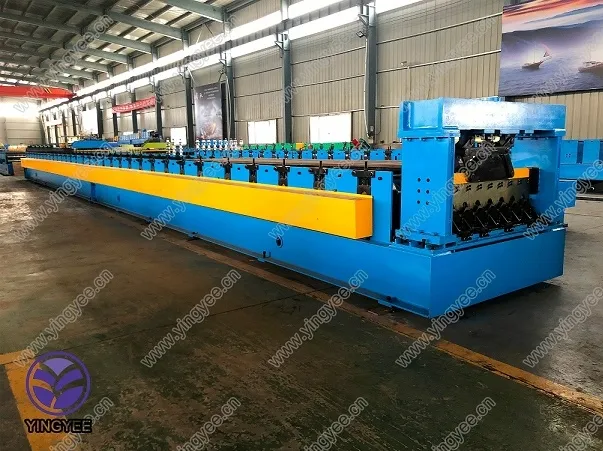
The Evolution and Importance of ERW Pipe Making Machines
Electric Resistance Welded (ERW) pipes have become a cornerstone in various industries ranging from oil and gas to construction and infrastructure. The machines that produce these pipes, known as ERW pipe making machines, play a crucial role in ensuring high-quality and efficient pipe manufacturing. This article explores the significance, technology, and advancements in ERW pipe making machines.
What is ERW and Why is it Important?
ERW, or Electric Resistance Welding, is a streamlined process used to produce pipes by forming rolls of steel plates into cylindrical shapes and then welding the edges together using electric current. This method is favored for its efficiency, strength, and the ability to produce seamless longitudinal welds, making it ideal for high-pressure applications. ERW pipes are used in conveying fluids, gases, and in construction applications where durability is paramount.
The Role of ERW Pipe Making Machines
ERW pipe making machines are integral to the pipe manufacturing process. These machines encompass a variety of components including material handling systems, forming mills, welding systems, and finishing lines. The precision and efficiency of these machines directly impact the quality of the pipes produced.
1. Material Handling Systems These systems are designed to feed raw steel coils into the production line. They ensure a continuous supply of material that is essential for uninterrupted manufacturing.
2. Forming Mills In the forming mill, steel strips are shaped into a cylindrical structure. The rolls are meticulously aligned to guarantee accuracy in dimensions which is essential for the final product.
3. Welding Systems The welding segment is where the real magic happens. Utilizing electric resistance, the machine welds the edges of the rolled steel together. This process requires meticulously controlled parameters—temperature, pressure, and the speed of the welding line—ensuring that the welds are strong and reliable.

Technological Advancements
The landscape of ERW pipe making machines has drastically changed over recent years due to technological advancements. Modern machines incorporate automation and artificial intelligence, enhancing their operational efficiency. For instance, automated systems can monitor the production process in real time, enable predictive maintenance, and improve energy management by minimizing waste.
Additionally, advancements in welding technology have led to better penetration and cleaner welds, which significantly enhance the strength and appearance of ERW pipes. New innovations like laser welding techniques are gradually being integrated, pushing the boundaries of efficiency and quality in the manufacturing process.
The Market Demand and Future Outlook
The demand for ERW pipes continues to grow, driven by expansions in infrastructure and energy sectors globally. As oil, gas, and water transportation needs escalate, the ERW pipe manufacturing industry is expected to see significant growth. This demand fuels the need for advanced ERW pipe making machines that can produce higher volumes while maintaining precision and reducing operational costs.
Future trends suggest a strong inclination towards sustainable production practices. Many manufacturers are exploring eco-friendly materials and processes, accounting for environmental considerations in the design of ERW pipe making machines. Reducing carbon footprints and improving energy efficiency will likely become a central focus in future developments.
Conclusion
ERW pipe making machines are vital to meeting the demands of modern industries. As technological advancements continue to shape their design and functionality, the future of pipe manufacturing looks promising. The significance of these machines will only grow as we move towards a more industrialized and interconnected global economy, making them indispensable in the supply chain for various critical infrastructure projects. In essence, the evolution of ERW pipe making machines symbolizes the intersection of engineering prowess and industrial necessity in a rapidly changing world.